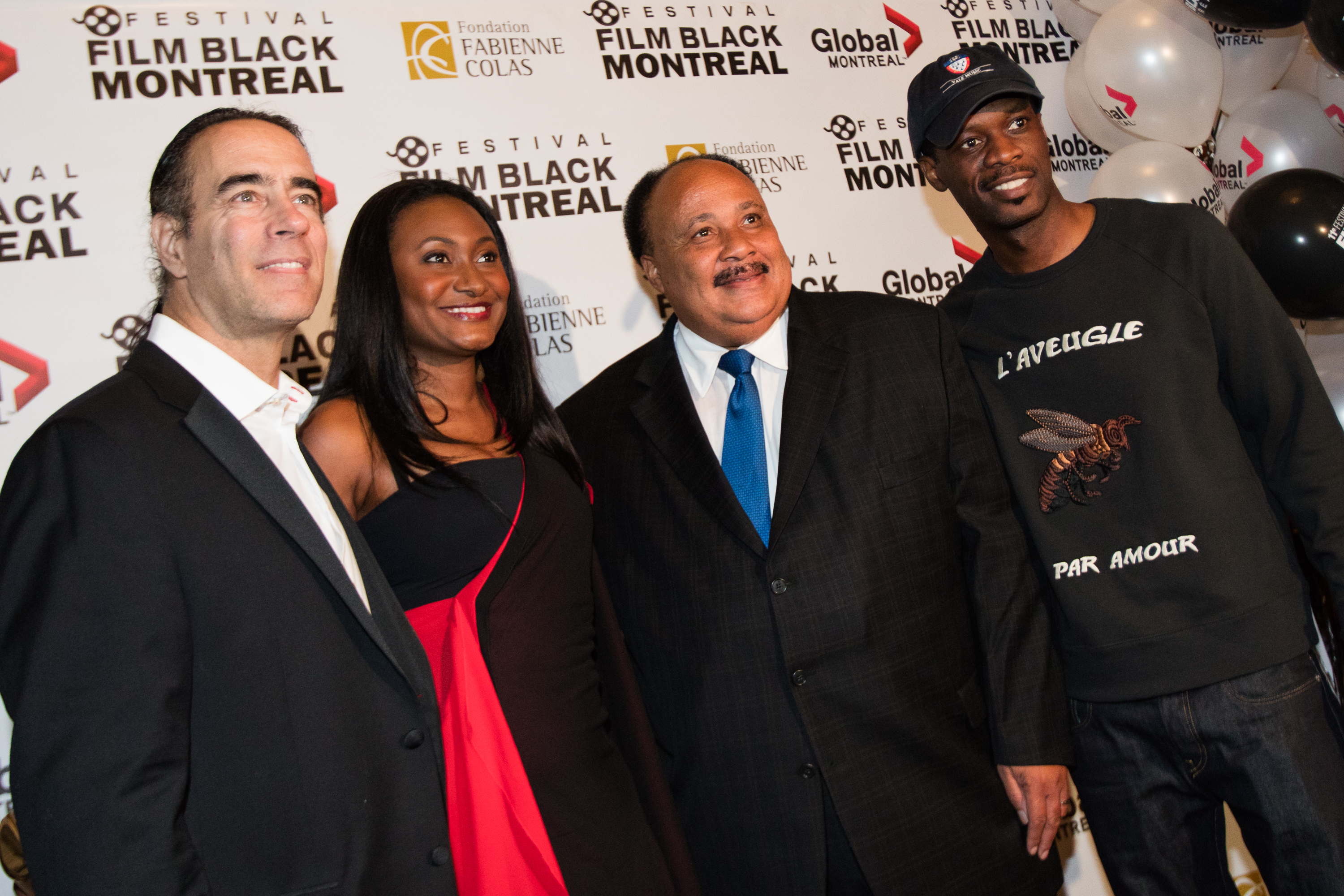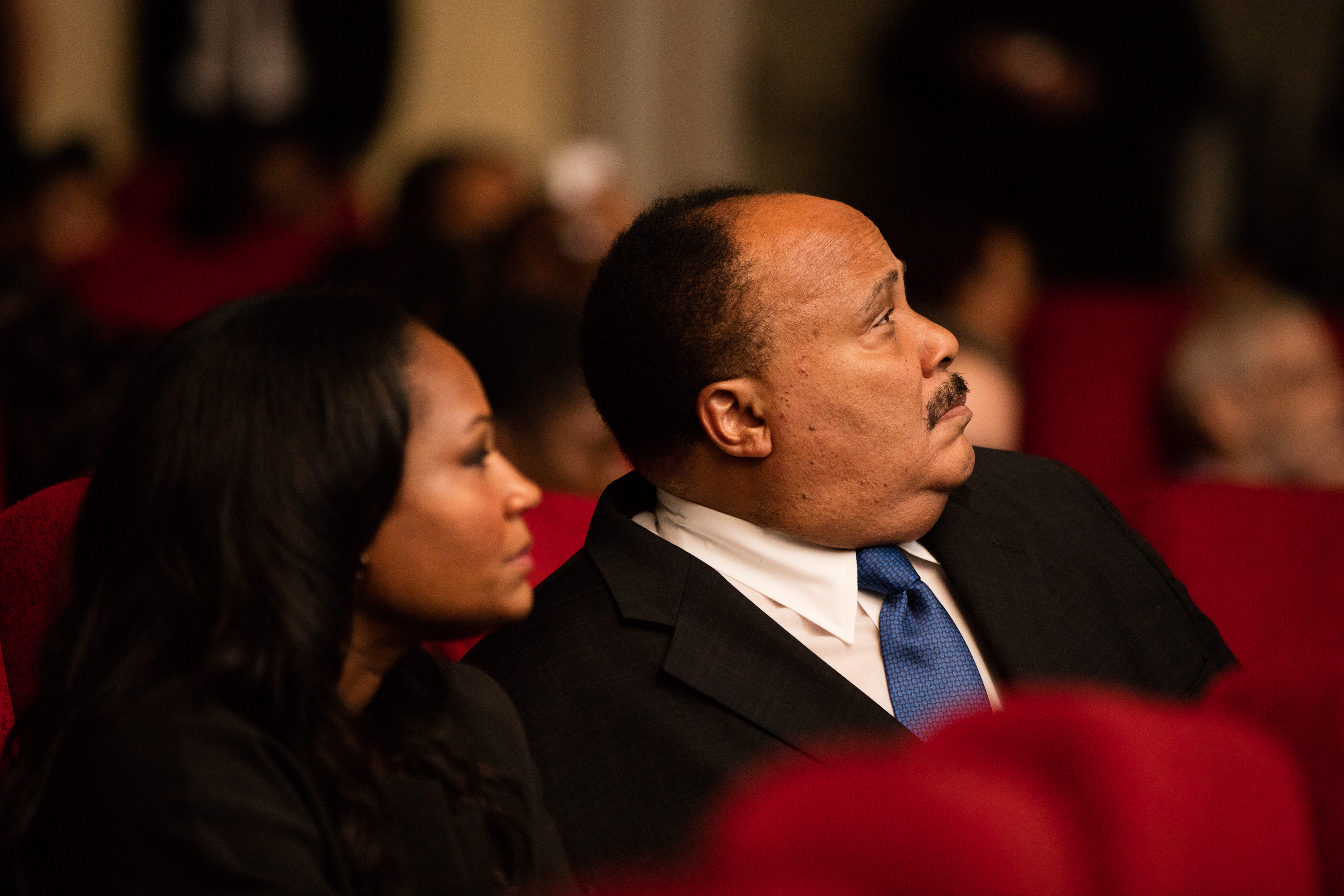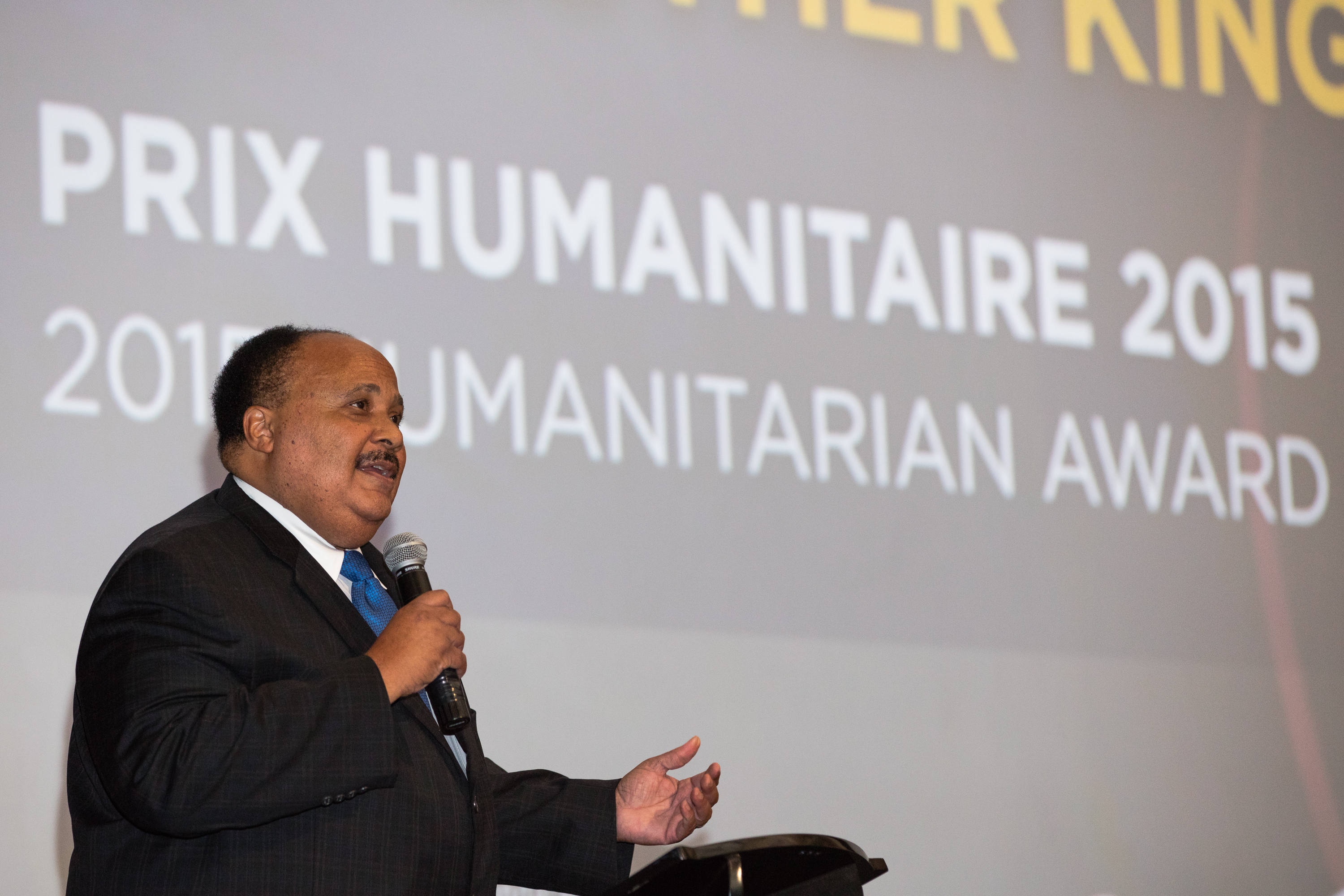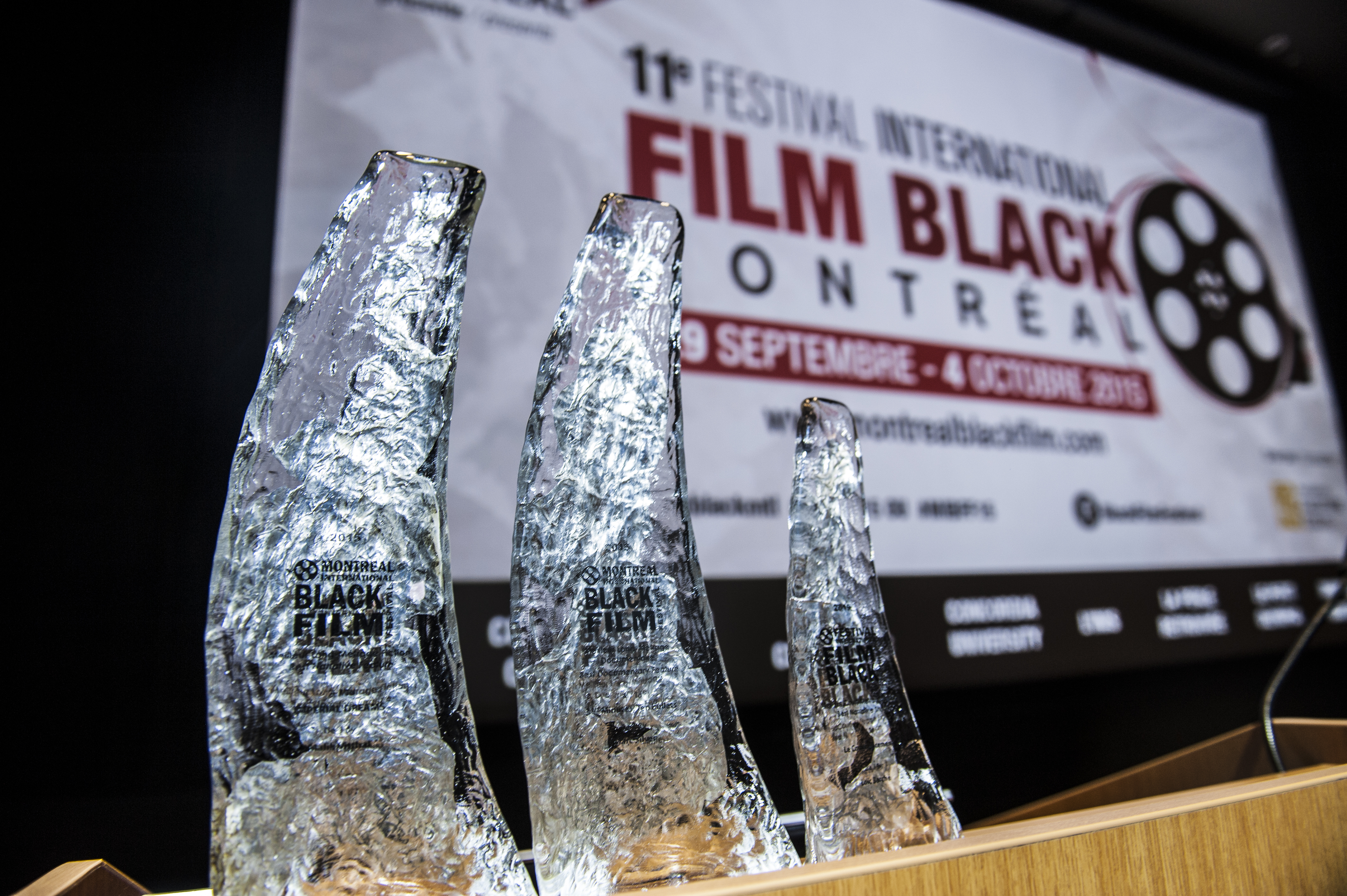The MIBFF opened and closed with a speech, a prize, and a documentary
As it has every year since 2005, the Montreal International Black Film Festival has come and gone, but its high points will echo in attendees’ minds for a long time. These, this year, have been the opening and closing of the festival.

The opening was held on Sept. 28 at the gorgeous Imperial Theatre and started with festival founder Fabienne Colas explaining the festival’s goal of celebrating black heritage and promoting both films that would have remained unseen and causes that would have remained unheard.
Big names took part in this year’s edition of the festival, the first of whom was Martin Luther King III, son of legendary civil rights leader Martin Luther King Jr. King followed in his father’s and grandfather’s footsteps by becoming a community activist, and the MIBFF sought to pay him tribute by awarding him its 2015 Humanitarian Award.

In his acceptance speech, King praised the progress that the world has seen in the last 50 years but also acknowledged the challenges that may lie ahead for his country, such as tackling wealth inequality. “We really do have a much better world when we include people,” said King. “Exclusion is always a formula for disaster.”
After King, it was Pras Michel, whose stage name is Pras, co-founder of the Fugees and two-time Grammy Award winner, who took the stage to introduce the festival’s opening film, Sweet Micky for President, a documentary which he produced. “This [doc] … is basically the aftermath of what Mr. King … and his father had inspired my generation to do—when something happens to your community or to your people, you use your platform,” he said.
Documentary making, the platform Pras used, is not one he is used to, but it was an effective tool to take on post-earthquake Haiti and the country’s political situation. The footage he and director Ben Patterson managed to get is astonishingly extensive, and the honesty with which the main players all speak is rare for American or European audiences.
Sweet Micky for President is an eye-opening documentary. The average viewer will know little about Haiti, so the fact that the movie opened with some backstory was more than welcome.The Caribbean country has a rich history—Haiti gained its independence way back in 1804, after a slave revolt fueled by the French Revolution.
That’s not, however, the subject of the film. The story it covers is truly stranger than fiction, and if, like me, you have never followed Haitian politics, you will find it unpredictable and as exciting as any fictional political satire. It follows Michel as he convinces fellow singer Michel Martelly—very popular in the country for his outrageously inappropriate dance performances—to run for president.
“We really didn’t know what we were doing,” said Michel. The two men start working on the campaign together with no program in mind but to dethrone a corrupted regime that seems to have conspired with all major candidates.
The movie is electrifying, alternating between thrills and comedy. Sometimes it combines both, as in a scene which depicts the destruction of the National Palace during 2010’s earthquake—a sight worthy of any disaster film—and then shows an interview with then president René Préval, who admits he’s not sure where’s he’s going to spend the night.
A lot of the comedy arises from Martelly, who is an unceremonious and outspoken character. His public image is that of a clown, and that’s how the documentary portrays him in the early scenes, as in the beginning of his campaign, which incidentally took place in Montreal. In later scenes, as the stakes get higher, he has no choice but to take a serious approach.
As tempting as it may be to research Haitian politics immediately and read the whole story beforehand, I would recommend knowing as little as possible about the subject when you watch the movie. It will then become a whole other experience with unexpected twists, like when Wyclef Jean—Michel’s band member—suddenly decides to run against Michel Martelly for the presidency. “I guess there won’t be another [Fugees] album,” jokes Jean in one scene.
Emotions ran high during the screening, with applause and laughter sometimes drowning-out all sound from the film—which you could then only follow by reading the subtitles.
The screening was followed by a Q&A with Michel, who said the documentary’s goal was to show Haiti’s culture rather than make a political statement. He was inspired to show a different side of Haiti after realizing that everything he heard about the country in the U.S. was negative. “Haitians had AIDS—[the disease] started in Haiti—or it was the coup that Papa Doc did in the ‘80s … it wasn’t until later on that I knew about Chicago being discovered by a Haitian … [Haiti becoming] the first black republic in 1804, The Three Musketeers [being] written by a Haitian [descendant].”
Yet Pras’ complaints about the present state of Haiti—“There’s no real education, … there’s no real infrastructure, there’s no real medical [care] in Haiti, there are no civil jobs … there’s no electricity … there’s no roads … there’s no progress”—drew him the ire of two obstinate audience members who got into a shouting match with the rapper.

“You can’t go on saying ‘I’m here to shed positive light,’ and the first thing that comes out of your mouth is shit,” said one audience member.
“Why [is it that], in Cuba, 98 per cent of people can read and write, and in Haiti, 98 per cent of Haitians can’t read and write! How is that progress!” Pras repeatedly shouted in answer before the individuals left the room.
Pras concluded by saying: “That gentleman right there, he may disagree with me, but you know what, when he’s going to go home and try to prove me wrong, how is he going to prove me wrong? He’s going to try to find out more things to see how he can help Haiti.”

The MIBFF closed on Oct. 4 with an awards ceremony held at Concordia’s Hall Theatre, followed by a screening of The Black Panthers: Vanguard of the Revolution. This 2015 documentary is directed by Stanley Nelson, who had examined various facets of American history in his previous works, and this time chose to chronicle the rise and fall of the Black Panthers.
The film consists mostly of interviews with participants of the movement, historians and former police and FBI agents, combined with extensive archive footage. Although the Black Panthers may be remembered negatively by many for the unambiguous calls to violence some of their leaders made, Nelson prepares the viewer to a different outlook on the movement from the first minute of the film. It opens with the age-old tale of the blind men feeling an elephant to understand what it is like; they end up disagreeing, because each is touching a different part of the elephant’s body.
The Panthers were created in 1966 in Oakland, California as a reaction to widespread police brutality towards the African-American community. The Panthers would stalk police officers and stand watching—loaded rifles and shotguns within reach—exercising their constitutional right to bear arms.
Needless to say, some lawmakers were not pleased. It is hard to imagine today’s Republicans arguing for gun control, but those in the late ‘60s, including then-California governor Ronald Reagan, were. A bill was introduced to make the carrying of loaded guns illegal, which the Panthers protested—also a shock by today’s standards—by making an armed entry into the California State Capitol in Sacramento.
After that protest the Panthers were fully ingrained in the American public’s consciousness. There was hardly any black youth who didn’t want to be a part of the movement, and seeing them on the big screen today, it’s clear they had a lot of appeal. The ‘60s were a time of revolution—social in the U.S., literal in other countries. It was a romantic era, spearheaded by young people with hopes and dreams, but perhaps also some naïveté and delusions of grandeur.
As some ex-Panthers admit on screen, the group’s downfall came from putting too much trust in leaders like Huey Newton, all while underestimating the police and the FBI.
A considerable part of the film is concerned with the J. Edgar Hoover-led FBI and its efforts to destroy the Panthers both from within and out. A whole operation, named COINTELPRO, was created in order to prevent what Hoover called “the rise of a black messiah.” Ethically, the operation hit rock bottom with the cold-blooded murder of a Panther leader by police forces and the literal gagging of a defendant in a courtroom.
It is on that solemn note of remembrance that ends the 11th edition of the MIBFF. After such a richness in terms of guests and programming this year, Fabienne Colas will have to work very hard to outdo herself come next year’s edition. And now on to Montreal’s next film festival!



